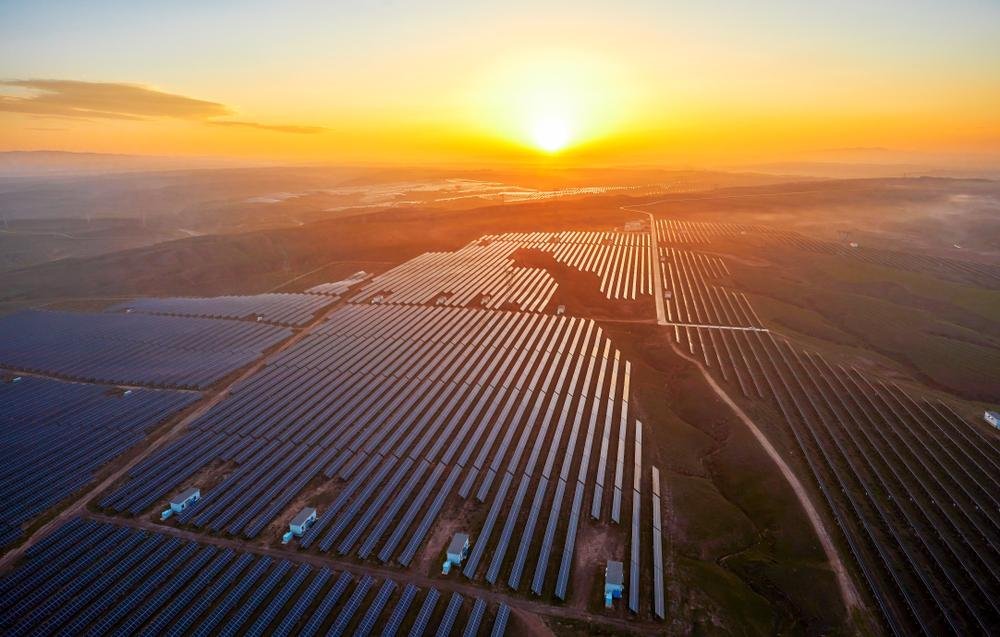Global partnerships are key to green revolution
Stuart Taylor of Justdiggit outlines why affecting positive environmental and economic change in Africa will help the whole world combat climate change
For too long, businesses and consumers have viewed climate change as a local problem something that, through slight changes at home, can be rectified on a global scale. But the reality is that no man is an island. And no global warming challenge should be addressed as anything less than the sum of its parts. Global warming isn’t, after all, a consequence of the emissions pouring out of London, the absence of electric cars in Berlin or the trees cut down in a local park in Paris – but a historic misuse of gas and oil on a global scale. One of the largest areas with the most potential to mitigate global warming through nature-based solutions is our mother continent, Africa.
The responsibility for climate action is shared. While there are benefits from investments in initiatives in Africa, those local benefits have a hugely positive impact on the world around them – reducing the number of climate refugees fleeing a desertified Africa and strengthening its local economy, providing food and water security to millions and protecting crucial biodiversity while sequestering tons of carbon. This benefits all of us.
By challenging the idea that making local environmental changes will have a locally environmental benefit, businesses and consumers can better understand the climate problem we face and how to overcome it. What’s more, those individuals can physically help to reverse the effects of climate change – and fast.
So why and how should businesses in Europe invest in climate change initiatives in Africa, and what are the global business benefits it can yield?

A global problem with a local solution
Carbon emitted anywhere affects everyone – it doesn’t matter whether it’s emitted in China or the UK, and it doesn’t matter where it’s reabsorbed either. However, not every nation is impacted equally – as the recent COP27 in Egypt sought to illustrate, it is the developing world that’s disproportionately affected by climate change, whilst having done the least to cause it. #at’s why leading nations have finally agreed to provide “loss and damage” funding for vulnerable countries hit hard by climate disasters. #e world’s nations are now beginning to acknowledge that this is a shared problem, and that it must be tackled together.
But this funding only treats the symptoms of climate change. To make most effective use of funds to tackle the crisis, businesses also have a part to play, and leaders need to understand how they can achieve this.
Historically, many business leaders have been reluctant to inject funds into climate initiatives, as rising sea-levels or desertification in far off regions don’t have an obvious impact on their business in, say, London – especially if those initiatives come at a prohibitive cost.
In reality, leaders need to start viewing tackling climate change as a business opportunity, and one which can help create global partnerships at extraordinarily little cost to themselves. Restoring natural ecosystems can help to tackle desertification, improve soil health, minimise the number of climate refugees, improve local infrastructure and create jobs, all leading to a stronger local economy in Africa – which can then trade with Europe more effectively. In the long-term, European investments in Africa can create a powerful trading partner, underpinned by a global supply chain.
Cost effectiveness
What’s more, investments in Africa go so much further than elsewhere. It is considerably more cost effective to effect change in Africa than in Europe, with the cost of labour, materials, plants for the restoration activities and of ongoing management being cheaper, and easier to scale up.
That’s where regreening efforts in Africa truly shine. In exchange for a smaller amount of capital, businesses investing there can have a significant impact on climate change. Similar initiatives to planting trees in the UK, for instance, are frequently hamstrung by red tape, regulations, political opposition, and higher costs than in Africa. In Kenya and Tanzania there are pastoralists and smallholder farmers, that we simply don’t have in the UK, who can be incentivised or hired to help restore trees in greater numbers.

Collaborating across continents
Climate change remains a multi-faceted global issue that requires every region to be equally invested in solving its challenges. This means there is a clear and pressing economic case for a strong Africa, just like businesses need a strong America, Europe and Asia. These issues won’t be solved if a major region is falling behind.
An Africa which is energy self-sufficient and thriving at a local and global level will be a powerful trade partner, collaborating to tackle many of the challenges that lie ahead.
Although businesses tend to think competitively, this way of thinking doesn’t apply to tackling climate change. We need everyone to succeed. We need partnerships to work. And this idea of working in Africa is a necessary and constructive partnership that can easily help fight against climate change.
Ultimately, as someone once put it, “there’s no profit on a dead planet”, and businesses increasingly understand that they need ecosystems to be thriving so that humans can thrive in turn – creating more work and opportunity. This requires businesses, NGOs, and government organisations of all stripes and flags to work together globally.
Businesses aren’t operating in a vacuum, but instead are a part of a wider ecosystem that either mutually benefits, or fails everyone.
ABOUT THE AUTHOR

Stuart Taylor is UK Country Director at Justdiggit, an NGO that fights global warming by restoring and regreening degraded land in Africa.
Further information

